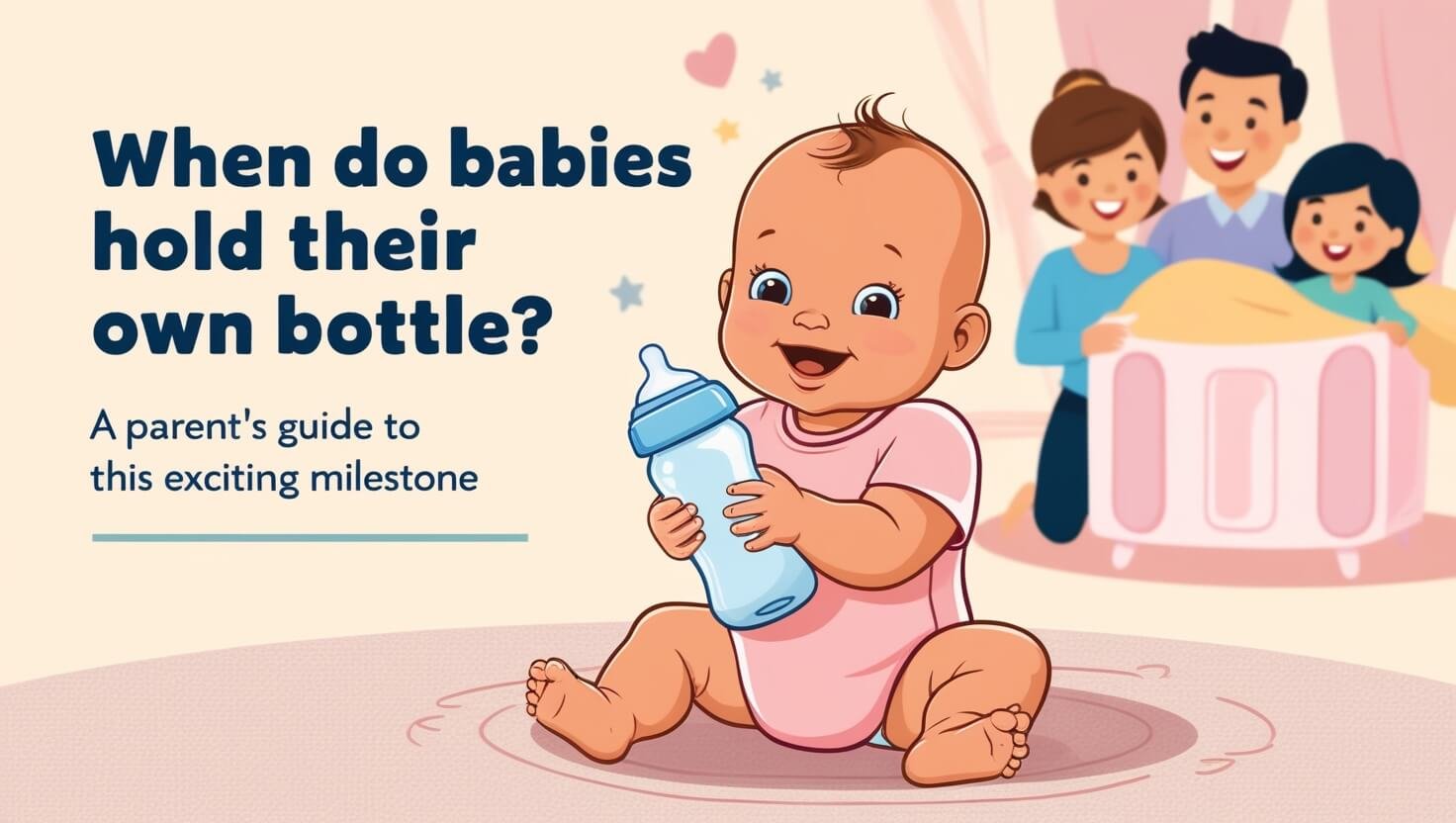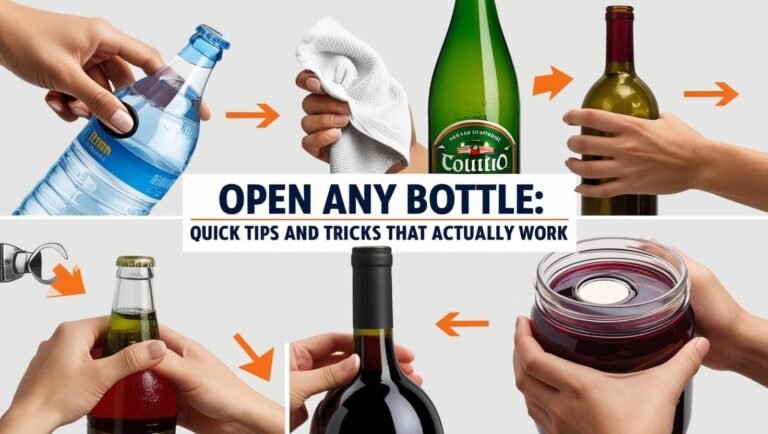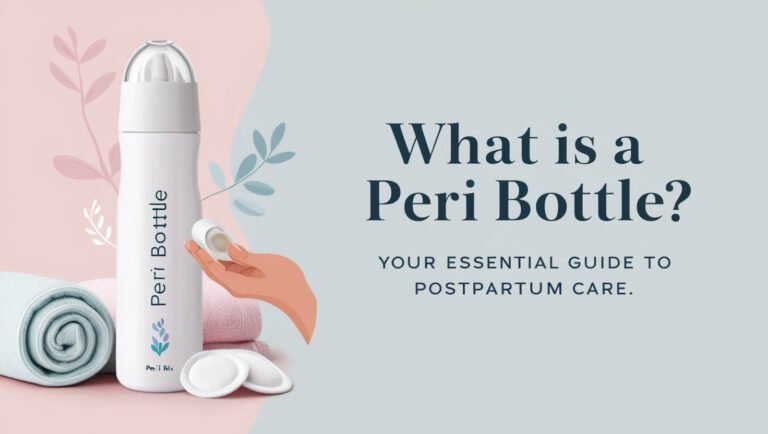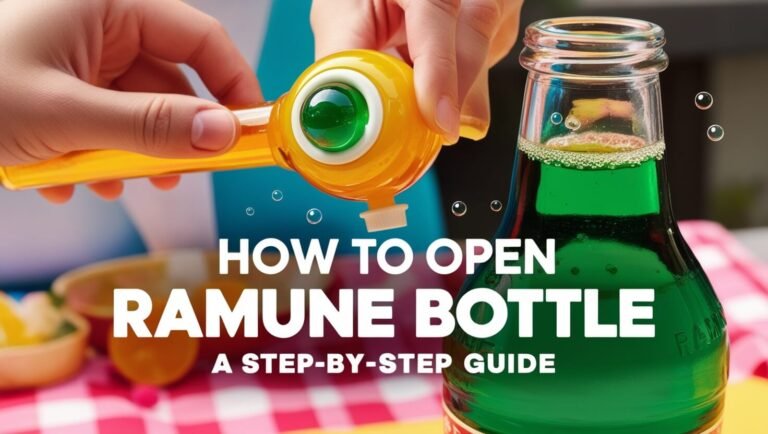When Do Babies Hold Their Own Bottle? A Parent’s Guide to This Exciting Milestone

Most babies start holding their own bottles between 6 and 10 months of age. This exciting milestone marks a big step in your little one’s journey to independence. But like all developmental stages, the exact timing can vary from child to child.
As a parent, you’re probably eager to see your baby reach this milestone. It’s a sign of growing strength and coordination. Plus, it might free up your hands for a few precious moments! But there’s more to this skill than meets the eye.
In this guide, we’ll explore everything you need to know about babies holding their own bottles. We’ll cover when it typically happens, signs your baby is ready, and how to encourage this skill safely. We’ll also address common concerns and bust some myths along the way.
The Age Range for Bottle Self-Feeding
Let’s start with the big question: when do babies hold their own bottle? While every baby is unique, most little ones master this skill between 6 and 10 months old. Some babies might show interest earlier, while others take their time.
Typical Timeline: When Most Babies Start Holding Their Bottles
Here’s a general timeline of what you might expect:
- 4-6 months: Your baby might start reaching for the bottle during feedings.
- 6-8 months: Many babies can hold their bottle with help.
- 8-10 months: Most babies can hold their bottle independently for part of the feeding.
- 10-12 months: Many babies can hold their bottle for the entire feeding.
Remember, these are just averages. Your baby’s timeline might look different, and that’s okay!
Factors Influencing When Babies Hold Their Own Bottles
Several factors can affect when your baby starts holding their bottle:
- Physical development: Strength and coordination play a big role.
- Practice opportunities: Babies who get chances to try often learn faster.
- Bottle design: Some bottles are easier for little hands to grasp.
- Temperament: Some babies are more eager to do things independently.
- Feeding method: Breastfed babies might take longer to hold a bottle.
Early vs. Late Developers: What’s Normal?
It’s natural to wonder if your baby is on track. But try not to worry too much about exact timelines. Some babies hold their bottles early, while others take their time. Both are normal!
If your baby isn’t holding their bottle by 10 months, don’t panic. Many babies skip this stage entirely and go straight to cups. As long as your little one is developing well in other areas, there’s usually no cause for concern.
Developmental Milestones Leading to Bottle Holding
Holding a bottle isn’t just about hand strength. It involves several developmental skills working together.
Fine Motor Skills Required for Grasping a Bottle
Before your baby can hold a bottle, they need to develop some key fine motor skills:
- Palmar grasp: The ability to hold objects with the whole hand.
- Pincer grasp: Using thumb and forefinger to pick up small objects.
- Hand-eye coordination: Guiding hands accurately using visual information.
These skills usually develop between 4 and 8 months.
Gross Motor Skills: Sitting Up and Stability
Bottle holding also requires some bigger movements:
- Head control: Babies need to hold their head steady to drink safely.
- Sitting up: Most babies can hold their bottle once they can sit unsupported.
- Core strength: A strong trunk helps babies stay upright while feeding.
Cognitive Development and Self-Feeding
Don’t forget the brain power involved! Your baby needs to:
- Understand cause and effect (tilting the bottle makes milk come out).
- Have object permanence (knowing the milk is there even when they can’t see it).
- Show interest in doing things independently.
These cognitive skills typically develop between 4 and 8 months.
Signs Your Baby is Ready to Hold Their Own Bottle
How do you know when your baby is ready to try holding their bottle? Look for these clues:
Physical Indicators of Readiness
Watch for these physical signs:
- Your baby can sit up with little or no support.
- They can grasp and hold toys for extended periods.
- They’re bringing toys or other objects to their mouth regularly.
Behavioral Cues to Watch For
Your baby’s behavior can also signal readiness:
- They try to grab the bottle during feedings.
- They show frustration when you hold the bottle for them.
- They’re interested in feeding themselves solid foods.
When Your Baby Starts Reaching for the Bottle
This is often one of the first signs that your baby wants to hold their bottle. If your little one keeps reaching out during feeds, they might be ready to try!
Encouraging Your Baby to Hold Their Own Bottle
Once your baby shows signs of readiness, you can start encouraging them to hold their own bottle. Here’s how:
Safe Practices for Teaching Bottle Holding
Safety always comes first:
- Always supervise bottle feedings.
- Start with a partially filled bottle to make it lighter.
- Help support the bottle at first, gradually letting go as your baby gets the hang of it.
- Never prop the bottle or leave your baby alone with it.
Choosing the Right Bottle Design for Self-Feeding
Some bottles are easier for babies to hold:
- Look for bottles with curved or hourglass shapes.
- Consider bottles with textured surfaces for better grip.
- Some bottles come with removable handles that can help.
Activities to Improve Hand-Eye Coordination
You can help your baby develop the skills needed for bottle holding:
- Offer plenty of tummy time to build strength.
- Play games that involve reaching and grasping.
- Let your baby practice with empty bottles during playtime.
The Importance of Supervised Feeding
While it’s exciting to see your baby hold their own bottle, safety is crucial.
Why You Should Never Prop a Bottle
Bottle propping might seem convenient, but it’s dangerous. It can lead to:
- Choking hazards
- Increased risk of ear infections
- Overeating
- Missed bonding opportunities
Risks Associated with Unsupervised Bottle Feeding
Even when your baby can hold their bottle, never leave them unsupervised. Risks include:
- Choking on milk
- Drinking too much too quickly
- Falling asleep with the bottle, leading to tooth decay
Balancing Independence and Safety
Encourage independence, but always stay close by. It’s a balance between letting your baby practice and keeping them safe.
Transitioning from Bottle to Sippy Cup
As your baby gets better at holding their bottle, you might start thinking about sippy cups.
When to Introduce a Sippy Cup
The American Academy of Pediatrics recommends introducing a cup around 6 months. By 12 months, they suggest phasing out bottles entirely.
Types of Sippy Cups and Their Benefits
There are several types to choose from:
- Hard-spout cups: Familiar shape, but can delay speech development if overused.
- Soft-spout cups: Gentler on gums, good transition from bottles.
- Straw cups: Great for oral motor skills, less risk of dental issues.
- Open cups: Best for development, but messiest!
Teaching Your Baby to Use a Sippy Cup
Start slow:
- Let your baby explore the cup during playtime.
- Demonstrate how to use it.
- Start with water to minimize mess.
- Be patient – it takes time to master this skill!
Common Concerns About Babies Holding Their Own Bottles
Parents often have worries about this milestone. Let’s address some common concerns:
What If My Baby Refuses to Hold Their Bottle?
Don’t worry! Some babies prefer to be fed. As long as they’re developing normally in other areas, it’s usually not a problem. Keep offering opportunities, but don’t force it.
Addressing Developmental Delays in Bottle Holding
If your baby isn’t showing interest in holding their bottle by 10 months, talk to your pediatrician. They can check for any underlying issues and offer guidance.
Bottle Holding and Breastfeeding: Managing Both
For breastfed babies, bottle holding might come later. That’s normal! Continue offering both breast and bottle as recommended by your healthcare provider.
The Role of Bottle Feeding in Overall Development
Bottle feeding, especially when babies do it themselves, plays a bigger role than just nutrition.
Social and Emotional Aspects of Self-Feeding
Self-feeding can boost your baby’s confidence and sense of independence. It’s a chance for them to exert control over their environment.
How Bottle Holding Impacts Other Developmental Areas
This skill supports development in other areas:
- Fine motor skills
- Hand-eye coordination
- Problem-solving abilities
- Understanding of cause and effect
Long-Term Benefits of Early Self-Feeding Skills
The skills your baby learns through bottle holding can help with:
- Using utensils later on
- Developing writing skills
- Building independence in other areas
Expert Opinions on Babies Holding Their Own Bottles
Let’s see what the experts say about this milestone.
Pediatrician Recommendations
Most pediatricians agree that:
- Bottle holding is a normal part of development.
- It’s okay if babies don’t hold their bottles by a certain age.
- Safety should always come first in feeding practices.
Occupational Therapist Insights
Occupational therapists often emphasize:
- The importance of proper positioning during feeding.
- How bottle holding contributes to overall motor skill development.
- Strategies for encouraging self-feeding safely.
Nutritionist Perspectives on Self-Feeding
Nutritionists typically focus on:
- Ensuring babies get the right amount of nutrition, regardless of who holds the bottle.
- The importance of responsive feeding, whether baby or parent-led.
- Transitioning to cups and solid foods at appropriate times.
Cultural Differences in Bottle Feeding Practices
Bottle feeding practices can vary widely around the world.
Global Perspectives on When Babies Should Self-Feed
Different cultures have different norms:
- In some cultures, babies are encouraged to self-feed early.
- Others prioritize parent-led feeding for longer.
- Some cultures skip bottles entirely, moving straight from breast to cup.
Traditional vs. Modern Approaches to Infant Feeding
Feeding practices have changed over time:
- Traditional methods often involve more parent-led feeding.
- Modern approaches may emphasize baby-led practices earlier.
- Today’s parents often blend traditional and modern methods.
Addressing Common Myths About Babies Holding Bottles
Let’s bust some common myths about this milestone.
Debunking Misconceptions About Early or Late Bottle Holding
Myth: Babies who hold their bottles early are more advanced. Truth: Early bottle holding doesn’t predict future abilities.
Myth: If a baby doesn’t hold their bottle by 10 months, something’s wrong. Truth: Many healthy babies never hold their own bottles.
The Truth About Bottle Propping and Development
Myth: Bottle propping helps babies learn to hold their bottles. Truth: Bottle propping is dangerous and doesn’t support development.
The Bottom Lines: Supporting Your Baby’s Journey to Independence
Every baby’s journey to holding their own bottle is unique. Some might eagerly grasp for the bottle at 6 months, while others might be content to let you do the work well into their first year. Both scenarios are completely normal.
Embracing Your Baby’s Unique Development Timeline
Remember, your baby will develop at their own pace. Offer opportunities for them to try holding their bottle, but don’t stress if they’re not interested. Keep these points in mind:
- Every baby is different.
- Development isn’t a race.
- Focus on overall progress, not just one skill.
Celebrating Milestones While Ensuring Safety
When your baby does start holding their bottle, it’s an exciting moment! Celebrate this milestone, but always prioritize safety:
- Never leave your baby alone with a bottle.
- Continue to supervise all feedings.
- Start thinking about transitioning to cups around 6 months.
As your baby grows and develops, holding their own bottle is just one of many exciting milestones they’ll reach. Enjoy each step of the journey, and remember – you’re doing a great job, parent!




